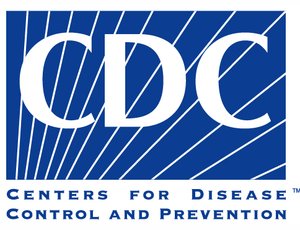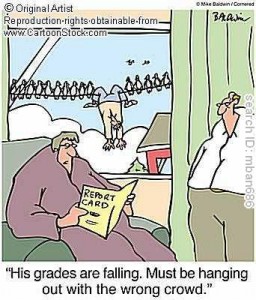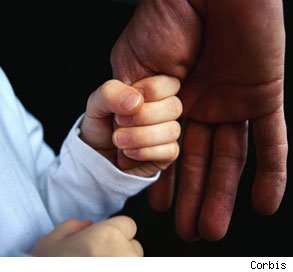As much fun as rioting in the streets can be, what with the free tvs and tear gas… let’s just all just agree to riot on our blogs instead, where there is less pepper spray.
Besides, is 1 in 88 really worth rioting over? I guess to some, it is. To others, it’s not really a surprise.
By the way, if you want to read, direct from the CDC, as to what all of their numbers were and how they got to this total, check out their report here: http://www.cdc.gov/mmwr/preview/mmwrhtml/ss6103a1.htm?s_cid=ss6103a1_e
 Reasons
Reasons
So how did we get from 1 in several thousand down to 1 in 110 and now…. 1 in 88? Well, let me recap for you a bit of my history in the world of autism.
My son was diagnosed at 2.5 years of age… which was about a LONG time after I had requested it. Why so long?
At 1.5 years of age, I asked my family doctor if he thought that my son could be autistic. He knew my son rather well, I went over all the signs and concerns I had… everything I knew about my child, I put out there for him to hear.
He told me that Cameron was fine, he’s really bright, he doesn’t seem to have anything obviously wrong with him…. just give it time. And so we did.
Shortly before he turned 2, I asked again. This time, said that he felt that I didn’t need to bring him in for an assessment and that it’s perfectly normal for boys to not talk at 2.. and to be “quirky.” I insisted. He said that they don’t do assessments for children until they’re 2 years of age so I’ll have to wait either which way… he’ll put in a request then.
So he puts in the request, we finally hear back from the hospital… his appointment is made for February. He turned 2 in July. Sheesh!
He was diagnosed “moderate to severe PDD-NOS”.
Why am I telling you this story?
Think about it… if my doctor can miss it, even advise against me getting the assessment done… how many other doctors are doing the same? Forget doctors… how many parents are out there missing it? I bet a parent insisting so much is far more rare than we’d like to think it is.
As awareness and information continues to grow, doctors and parents are becoming far more able to recognize the signs. MUCH better! But remember, my story was only from a few years ago.
So even though we’ve come a long way in the last 50 years, we’re not there yet!
As we continue to reach everyone though, the more children will get assessed. You have to understand, if more doctors can recognize it, if more parents can insist on it…. more children will be assessed… and therefore, diagnosed!
The numbers go up!
On top of that, how many children have been and still are being misdiagnosed? Sure there are a lot of children going without a diagnosis but there’s also a lot of children being misdiagnosed. Some children are being diagnosed with ADHD or OCD or SPD…. when in reality it’s a bit of all those things, which may add up to autism (might not too, but you get the point).
So again, as doctors and parents learn…. those wrongly diagnosed people are being reassessed and given the proper diagnosis… and the people that have yet to be assessed might be given the right diagnosis.
To make matters worse, we have the ever changing definitions put forth by the DSM. It was just the last one that first introduced PDD-NOS and Asperger’s into the Autism Spectrum umbrella to begin with. You just know that’s going to increase the numbers.
Then you have geography. Some areas are simply different than others. Some states have educators making the diagnosis, others have neurologists while others go to a pediatrician. And again, some places have more money than others, more resources, better understanding and more differences that can increase or decrease their ability to make proper assessments.
But what about toxins?
I know what you’re thinking… this is all about genetics and avoiding the issue of environmental toxins. Well, no. All of what I just explained *could* maybe explain all of the increases in numbers, but then it might not either.
The truth is that environmental toxins have most definitely increased over time… especially in the last 150-200 years or so… with industrial and technological ages moving faster and faster.
Do I think it’s vaccines? No. Do I think it could be *something* or a combination of a lot of somethings? Fact is, I just don’t know but it certainly could be.
We’re all living life a little differently than our ancestors did… inside and out. We eat, drink and breathe differently than they did.
However, I do know that our environment most certainly does not account for the entire increase. It does not make the numbers go up all by itself.
If our environment does have an effect on the numbers, then I believe that it’s all of the other stuff I’ve mentioned in combination with it.
Ready to riot?
Now the fun part, let’s riot!!
No, not in the streets and no, not in fear.
The truth is, new numbers or not… nothing has changed. The world is what it is whether or not we crunch some numbers.
What we need to do, together, is use the numbers to further educate and further make aware… if it means increasing the numbers even more, so be it! Let no little autistic go undiagnosed! Parents and doctors should NOT be missing it.
Actually, if you think about it, it’s a bit ironic. We raise awareness because the numbers continue to rise and in so doing, we cause the numbers to rise even more! And then when they do, we freak out and raise more awareness!
The point is, if ever there was a reason to riot, this is it. We need services. We need help.
Not just us parents but the entire community. Autistics need more help in school, more help in the workforce, more help in life. Not to do everything for them but to be there for them when they need it!
My son is growing up. One day he’ll outgrow the services available to him. I would love to know that he can find work that won’t judge him or treat him unfairly, I would love to know that he’ll have services he can take advantage of if he needs to… whether he’s living on his own or not.
I would love to know that if my son wants to and is able to, he can do any job he wants to do, be anywhere he wants to be and do anything he wants to do, because he can, rather than being told that he can’t because of the label that others use to hold against him.
Riot.
Not to stop the numbers from going up.
To help the people that those numbers represent.











